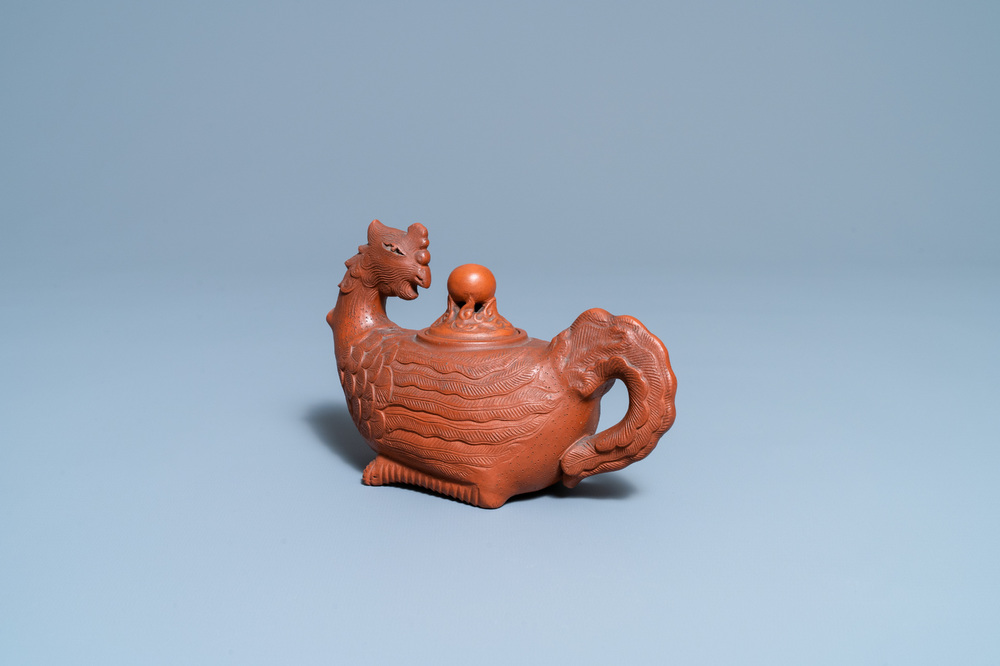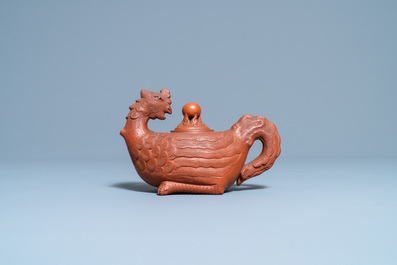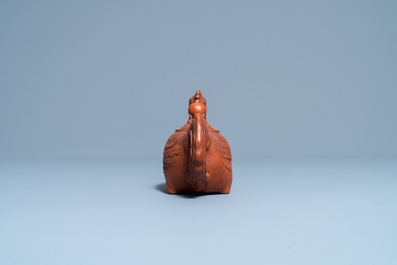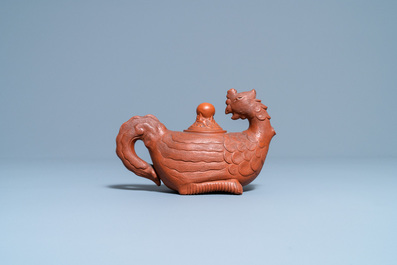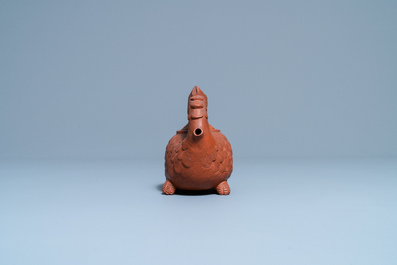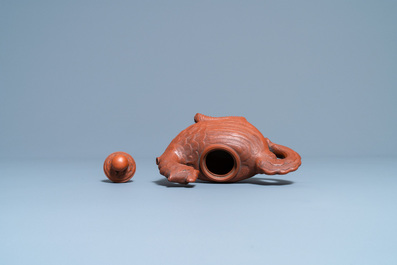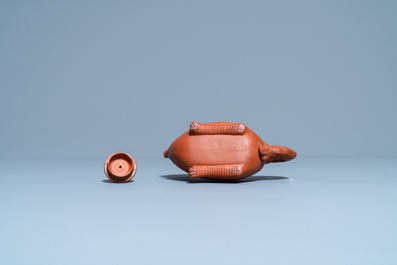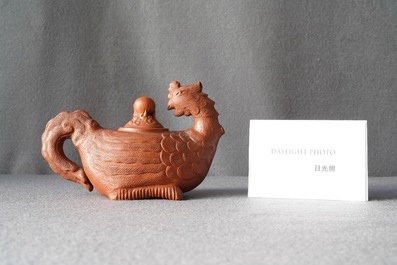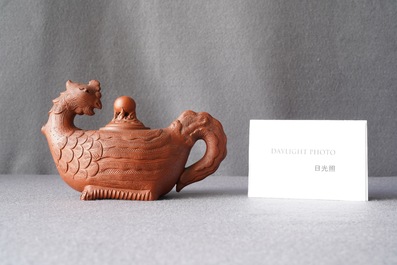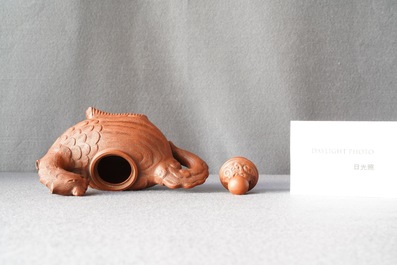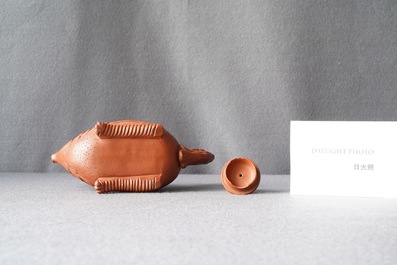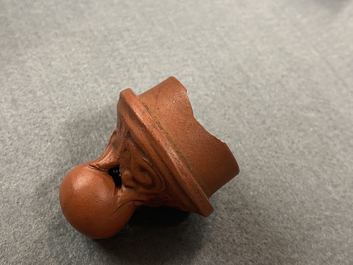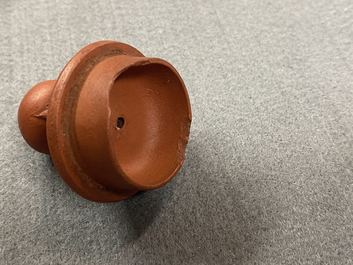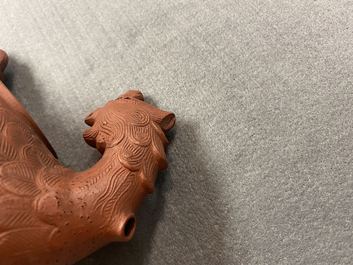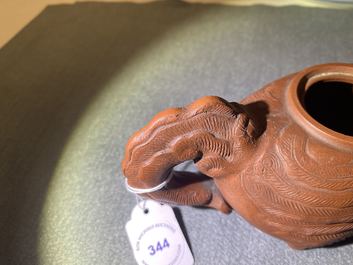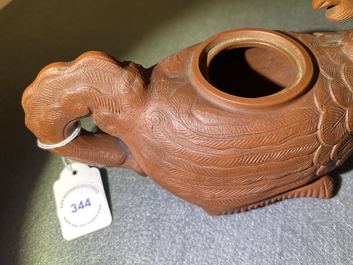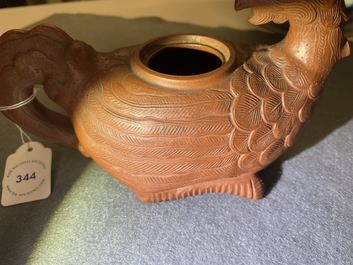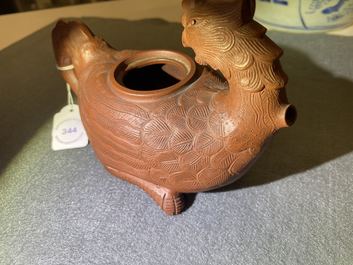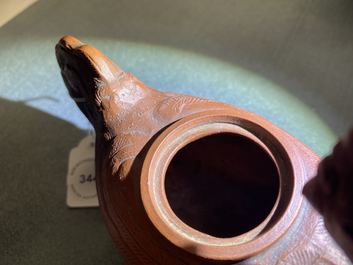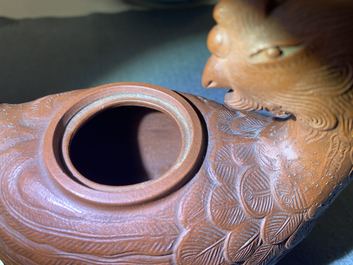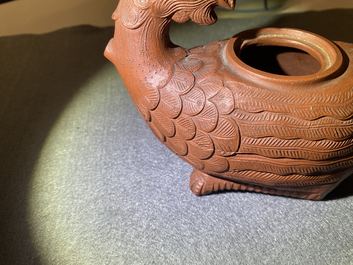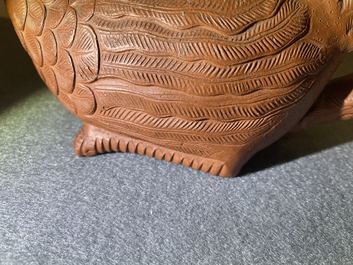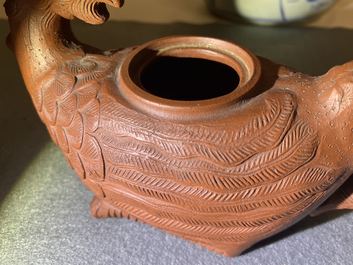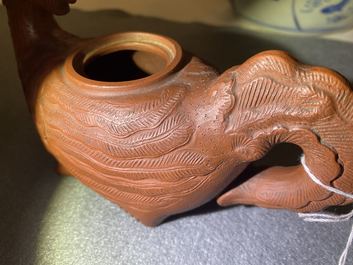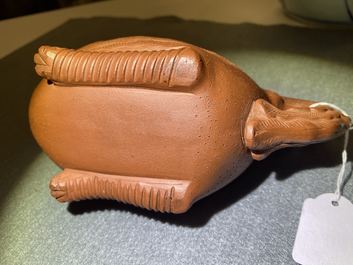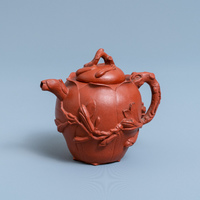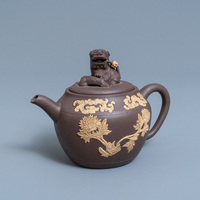We have to double-check your registration and make sure this is not an automated entry in our system. Please complete the test below...
A Chinese Yixing 'phoenix' stoneware teapot and cover, Kangxi
L.: 17 cm - H.: 11 cm
Condition: (UV-checked)
- The cover with two chips to the underside of the inner rim.
- The teapot with a chip to the back of the phoenix' head, otherwise in good condition with a few very small superficial chips and minor wear throughout.
Ref.:
- Patrice Valfré: 'Yixing, Des théières pour l'Europe', p. 172, nrs. 29-30, for two carp- and frog-shaped examples in the collection of the Porzellansammlung Zwinger, Dresden, Germany.
- The Peabody Essex Museum, inv. no. AE86563.AB, for a nearly identical example (link), accompanied by the following text: The form of the Yixing stoneware ewer is that of a phoenix (feng huang), a mixture of a pheasant and a peacock, a bird that appeared in times of peace and prosperity, and was an emblem of the Empress of China and consequently an emblem of femininity. The long tail curls under the body to form the handle, with the lid in the form of a pearl rising from the waves of the sea. The ball may also represent the sun rising out of the sea as the phoenix was considered the product of the sun or of fire and is often pictured gazing on a ball of fire. The two fold term feng huang might be rendered as ‘crested love pheasants.’ These are often identified as teapots although they may equally have been used for wine, or even made entirely for decorative purposes. This is among the more graceful of the published examples, with its high arching neck, finely swirled head feathers, and a highly vitrified body that results in a sheen not seen on what may be later and less refined versions.
